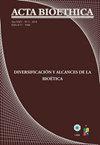电子医疗应用和数据保护:选定欧盟成员国国家法律制度的比较
IF 0.3
4区 哲学
引用次数: 1
摘要
在世界不断发展和数字化的背景下,卫生产业是最相关的创新领域之一,特别是随着电子健康记录或移动设备上的健康应用程序等无数类型的电子健康(e-health)应用程序的发展。此外,随着数据变得越来越有价值,患者的健康数据尤其需要得到最高程度的关注,因为这些数据非常机密,并且大量存储在电子卫生应用程序中。随着新技术的发展,法律被认为是为了规范它。这意味着法律必须充当健康数据的保护者。在欧盟内部,欧盟委员会主要通过2018年的《通用数据保护法》(GDPR)处理了数据保护问题,但每个国家都有责任处理卫生领域的新技术,实施和应用数据保护健康数据。因此,比较欧洲国家如何从法律角度处理电子保健应用中的健康数据管理问题并评估其效率是有意义的。为了本研究的目的,只比较三种类型的健康应用程序作为样本,包括电子健康记录,电子处方和移动健康应用程序。本文章由计算机程序翻译,如有差异,请以英文原文为准。
E-Health Applications and Data Protection: a comparison of selected European Union members’ national legal systems
In a context of constant evolutions and digitalization of the world, the health industry is one of the most relevant areas of innovation, especially with the development of countless types of electronic health (e-health) applications such as electronic health records or health applications on mobile devices. Furthermore, as data is becoming increasingly valuable, patients’ health data, in particular, require the highest level of attention as it is vastly confidential and stored in massive amounts in e-health applications. Along with the development of new technologies, law is deemed to follow for regulating it. This implies that law must act as a protector for health data.Within the European Union, the issue of data protection has been dealt with by the European Commission notably through the General Data Protection Act (GDPR) in 2018, but it is each country’s responsibility to deal with new technologies in health, implement and apply data protection to health data.Thus, it is relevant to compare how European countries deal with health data managing issues in e-health applications from a legal perspective and evaluate how efficient they are. For the purpose of this research, only three types of health applications will be compared as a sample, including electronic health records, electronic prescriptions and mobile health applications.
求助全文
通过发布文献求助,成功后即可免费获取论文全文。
去求助
来源期刊

Acta Bioethica
医学-卫生政策
CiteScore
0.60
自引率
0.00%
发文量
22
审稿时长
1 months
期刊介绍:
Acta Bioethica is a biannual publication by the Interdisciplinary Center for Studies in Bioethics of the University of Chile (ISSN 0717-5906, press edition, y 1726-569-X, electronic edition), which publishes in three languages: Spanish, English and Portuguese.
Indexed in Science Citation Index (SCI), Scopus, Lilacs, SciELO y Latindex, and in database from several Institutions; it constitutes a pluralistic source of perspectives and an important tribune which accepts the contributions of authors compromised with the interdisciplinary study of ethical determinants and consequences of techno scientific research.
 求助内容:
求助内容: 应助结果提醒方式:
应助结果提醒方式:


